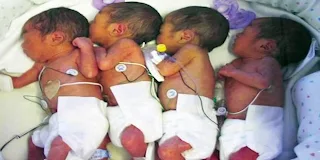When Udeme Akpa got admitted into secondary school,
the joy of the parents knew no bounds. For them, it was like a prayer
answered.
As the first daughter of a family of eight, there
were so many expectations including lifting the family from what could be
described as ‘age-long poverty.’
Udeme, 18, was living up to expectation until the unexpected
occurred. Her woes began one evening when a man in her neighborhood gave
her a ride to school.
Little did she know that the few minutes ride would later
become a stumbling block to her life’s dream.
A few months later, the same man identified as Mr. Udoh
invited Udeme to his house, but she turned him down. After much
persuasion, Udeme accepted to visit him.
Sadly, innocent Udeme never knew she was playing with
fire until he visited Udoh. On that fateful
Friday, Udeme decided to visit him.
Sadly, she was raped by the same man whom she thought
showed her kindness. Subsequently, she had unprotected sex with Udoh.
Unfortunately, Udeme concealed the incident from her
parents. Although Udeme was sexually active, she was not on any type of family
planning. A few months later, Udeme discovered she was pregnant.
“I was confused and my friend took me to a chemist and
because we didn’t have money to pay, the owner of the shop demanded that he
sleeps with me before he will give me drugs. I had no choice than to do it,”
She narrated.
In the process of trying to abort the pregnancy, Udeme
had complications that ruptured her womb.
She was hospitalised for weeks.
That incident ended Udeme’s dream to finish college.
Udeme is one out of thousands of adolescents in Nigeria
that have either lost their lives or maimed for life due to lack of access to
family planning.
The case of Udeme is also among the 214 million women
of reproductive age in developing countries who want to avoid pregnancy, but
are not using a modern contraceptive method, according to the World Health
Organisation (WHO) report.
Sadly, unsafe abortion remains a reality in Nigeria,
despite the fact that it is regarded as a taboo and illegal by law.
Stories of young Nigerians who die while undergoing
abortion abounds but, the act still goes on in smaller rooms and performed by
traditional healers which make it more dangerous and deadly.
Unintended pregnancy has become the bane in society.
It is so rampant in society today.
Critical observers believed that pregnant teenagers
in Nigeria are victims of the tragedy of all kinds.
Many of these girls have died as a result of unsuccessful
abortions, while others like Udeme have also dropped out of schools.
Statistics available put the number of out-of-school
children in Nigeria at 10. 5 million, while the United
Nations Children’s Fund, (UNICEF) says about 60 per
cent of the figure are girls. Further findings also showed that unplanned
pregnancies of teenagers make up the number.
However, for possible solutions, apart from sexual education,
experts say encouraging teenagers to adopt family planning reduces the need for
abortion, especially unsafe abortion like in the case of Udeme.
Family planning reduces adolescent pregnancies.
WHO report also shows that pregnant adolescents are
more likely to have preterm or low birth-weight babies. Babies born to
adolescents have higher rates of neonatal mortality.
Many adolescent girls who become pregnant have to leave
school. This has long-term implications for them as individuals, their families, and communities.
It is also believed that when teenagers are
protected from abortion and unintended pregnancy they do not drop out of school
but stay in school.
Also, family planning methods, such as condoms, help
prevent the transmission of HIV and other sexually transmitted diseases among
adolescents.
It has also been established that by reducing rates
of unintended pregnancies, family planning also reduces the need for unsafe
abortion.
There is a need to promote and make available for contraceptives
for adolescent Nigerians in order to reduce their frustration accessioned by an
unplanned pregnancy.
According to WHO, family planning is key to slowing
unsustainable population growth and the resulting negative impacts on the
economy, environment, national and regional development efforts.
This article was adapted
from the Media Advocacy Working Group Family Being Column in Leadership
Newspaper




